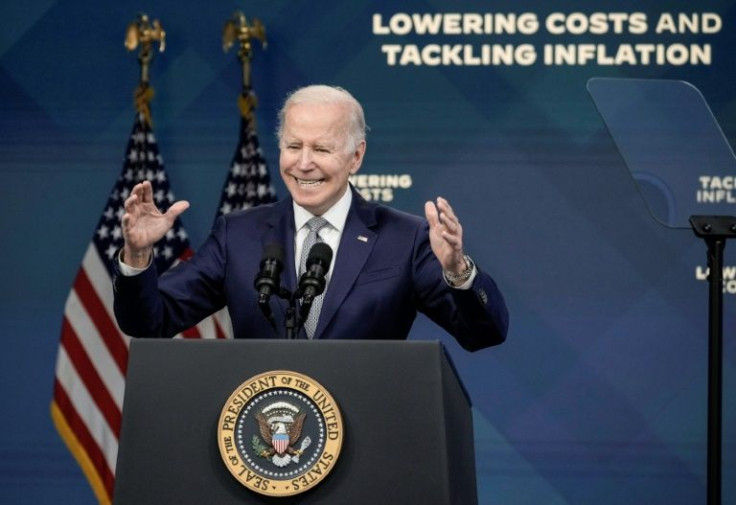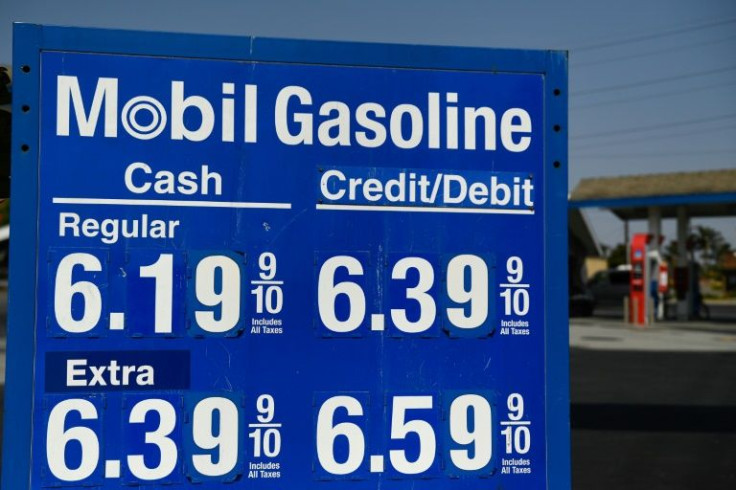US Inflation May Have Peaked, But Pain Continues
With surging prices undermining wage gains and hurting American families, US President Joe Biden said Tuesday that fighting inflation is his top priority, but he may have limited tools to tackle the issue.
Biden, whose popularity has taken a hit amid the highest inflation in four decades, spoke on the eve of the release of the latest consumer price data, in an effort to get out ahead of more damaging news.
The flare-up in inflation means Americans are paying more for homes, cars and food, and for gasoline, which hit a record on Tuesday.
While economists believe the surge may have peaked in March, the pain is likely to last for months.
"I want every American to know that I'm taking inflation very seriously, and it's my top domestic priority," Biden said at the White House.
"I know that families all across America are hurting because of inflation."
The US president put much of the blame for the recent spike on Russian leader Vladimir Putin and his invasion of Ukraine.

The attack in late February caused a sharp spike in energy prices, and pushed food prices higher as well.
"I know you've got to be frustrated... believe me, I understand the frustration," Biden said, addressing Americans directly.
The Democrat called out opposition Republicans for their "extreme agenda," and for slowing his efforts to manage stresses hitting the economy.
The world's largest economy has come roaring back from the economic damage inflicted by the Covid-19 pandemic, helped by bargain borrowing costs and massive government stimulus measures.
But with the pandemic still gripping other parts of the world, global supply chain snarls drove up prices for cars and other products, while a flood of new homebuyers caused housing prices to soar.
Meanwhile, the conflict in Ukraine sent global oil prices above $100 a barrel.

US consumer prices jumped 8.5 percent in the 12 months that ended in March, and though economists think that may have been the peak, the rate is likely to remain high for months to come.
The Labor Department is set to release the April CPI data on Wednesday, which economists project will show a much more modest monthly increase, slowing the torrid annual pace.
Biden assured Americans that the Federal Reserve is acting to tamp down inflationary pressures.
The US central bank last week announced the biggest increase in the benchmark lending rate since 2000, the second hike since March, with more increases ahead.
New York Fed President John Williams on Tuesday said policymakers will move "expeditiously" to "turn down the heat" on the economy.
And he said the Fed has the tools to do so without causing an economic downturn.
"Although the task is difficult, it is not insurmountable," he said.
Addressing another politically sensitive aspect of the inflation puzzle, Biden said he was considering lifting tariffs on Chinese goods imposed by his predecessor Donald Trump.
"We're discussing that right now," he told reporters, adding that "no decision has been made on it."
Biden is under pressure from some quarters to remove the tariffs in a bid to cut the roaring inflation by making US imports cheaper.
Jason Furman, a former White House economic advisor under Barack Obama, said removing the tariffs is one of the few things Biden can do to directly address inflation.
"This would be the biggest step he could take," Furman said on MSNBC.
Trump imposed the tariffs to punish allegedly unfair trade practices by Beijing. Lifting the measures would likely bring a political risk for the White House, which does not want to be branded as weak on China.
© Copyright AFP {{Year}}. All rights reserved.





















